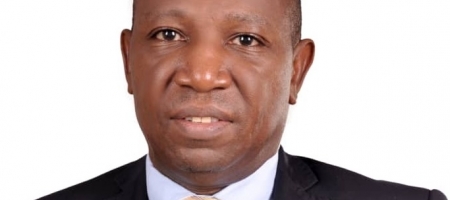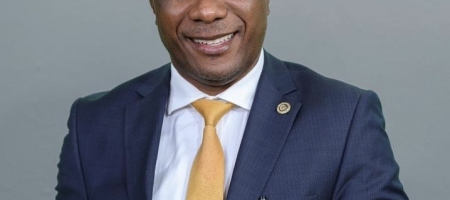A Banker, A Lawyer and An Indian: A Tale of Corruption in our Banks

By Frank R Kasoroza
A story is told of an elderly woman in 1935 New York whose son in law abandoned her daughter and their two children. The toll of the great depression apparently more than he could bear.
This elderly lady, herself reeling from the economic hardship of the day, but spurred on by that most beautiful of human traits - goodness, took them in. Today, because of Covid19, the world once again finds itself having to deal with an unprecedented economic shock whose net result is, unfortunately, the deepest global recession since 1933.
Uganda, like the rest of the world, has not been spared by Covid19 and its resulting economic distortions. The Africa Development Bank in its latest economic report states thus: “Economic growth is projected to decline to 2.5% in 2020 and partially recover to 3.5% in 2021 in the baseline scenario, assuming the pandemic is contained by the third quarter of 2020.
In the worst-case scenario, where the pandemic persists to the end of 2020, GDP growth is projected to decline to 1.6% in 2020 but rebound to 4.2% in 2021. Economic activity in services, manufacturing, and construction are expected to remain fragile. With aggregate demand subdued, prices will remain relatively stable, and annual inflation is projected to increase slightly to 4.6% in 2020 in the baseline scenario.”
On the other hand, the global economy is projected to contract by at least 3% in 2020, much worse than the contraction following the 2008/9 financial crisis. Like in many other jurisdictions, our Central bank - Bank of Uganda - has reduced its policy rate to 7%. It also extended credit to banks in distress to address the expected rise in non performing loans.
These measures by the Central bank are primarily aimed at supporting economic activity, in the form of credit relief to borrowers, of our private sector. These very welcome interventions are meant to boost aggregate demand by providing cash transfers to vulnerable groups (informal urban traders) as well as to firms in tourism and hospitality.
When president Museveni partially lifted our “lockdown” - reopening public transport and shopping malls. Traders and owners of these malls excitedly got back to work. However, some unscrupulous individuals in commercial banks, in a practice as old as the defunct Crane bank, began to unfairly and illegally make demand notices on mortgage facilities.
One example is that of Mr.Hamis Kiggundu, a young trader and mall owner in Kampala. In a battle between him and his bankers - Diamond Trust Bank Kenya and Diamond Trust Bank Uganda, Mr. Kiggundu - commonly referred to as Ham - contends that Diamond Trust illegally withdrew nearly Ugx 120bn (Ugx 34,295,941,533 and USD 23,467,670.61) over a 9 year period dating from 2011.
In 2013,an elderly lady, widowed since 2005, was approached by a lawyer and a banker. She was told that she could redevelop her home in the plush neighborhood of Nakasero. The lawyer and banker convinced her that their bank - Housing Finance bank - could avail her with a credit facility worth nearly USD3m.
Reader, as you probably are aware, a parent's desire is to depart this green earth without having to worry about the “financial, social and emotional security” of their children. It was therefore no surprise when this elderly widow took on a mortgage facility from Housing Finance Bank. Besides, Housing Finance was her late husband’s banker.
It is a bank that has flourished under her beloved president Museveni led NRM government. These sentiments, evidently, do not count for much when Mr. Mayanja must fraudulently use his position in the bank to enrich himself (commissions as a result of insider trading) at her expense.
From asking for “cups of tea” to many other illegalities such as unauthorised account deductions, the Mayanja’s in all our banking institutions continue to strangle an already fragile hospitality sector. They deceive and maneuver within the greyness of our Mortgage Act to repossess and sell off prime properties at massively discounted, usually less than 1/3 of their Forced Sale Value, rates. The buyers of these properties are more often than not Indian owned businesses.
The old lady in 1935 New York faced the same fate. Left high and dry by a banker that refused to acknowledge the effect of 1933s economic depression, she was arrested for stealing a loaf of bread. The judge, Fiorello LaGuardia, at her trial, on learning that this was the only way to feed her grandchildren, paid her USD10 fine.
He also sentenced everybody in his courtroom to a USD 0.50 fine “for the indifference and ignorance in this community. An old woman should not have to steal breed to feed her children.”
Commercial banks primarily sell financial products to depositors. However, they must not be indifferent to prevailing economic realities. Our banking sector, with its endless recycling of staff, is guilty of “indifference and ignorance”.
Why?! Because they allow the Mayanjas’ to abuse the trust of their clients. Goodness gives way to commissions and alas; the camel does pass through the eye of a needle. Enough!!
Links
- 957 views










































